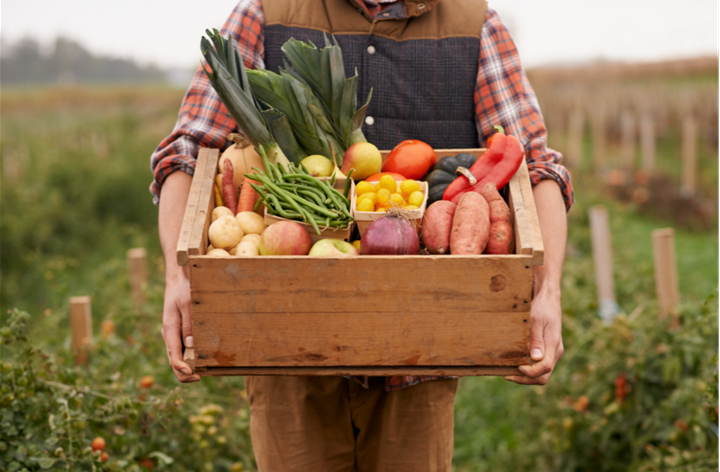We know that what we eat matters for our health. What might be a surprise is that our relationship with food, where it comes from, and who we eat it with are just as important. Exploring these things and being intentional with our eating patterns can help us develop healthier habits and improve our overall quality of life.
The path to eating well doesn’t have to involve kale smoothies or vegan nut cheese, it will look different for each person. That’s why we included many different ways for eating well in our This Way to Well-Being map. (Information about the map and related campaign can be found here.)
You may have tried eating healthier in the past without much success. The key to changing our habits is to find our own “hook.” Do you enjoy being outdoors? Do you want to have more energy? Are you interested in supporting local businesses? Your path to well-being involves exploring activities that are meaningful and interesting to you.
There are several food-related “points of interest” along the Way to Well-Being map, including:
- Plant a Garden
- Eat More Fruits & Vegetables
- Cook a New Healthy Recipe
- Visit Food Roots (Storefront in Downtown Tillamook)
- Visit a Farmers Market
Do any of these appeal to you? Maybe you have been thinking about growing your own food for a while and just haven’t taken those first steps yet. Or perhaps, you have thought about supporting local farms or buying locally sourced foods but weren’t sure where to start.
Convenience drives our behavior and decision making. If we know where to find food at the local grocery store, we may not be willing to invest the time in finding local products in other locations. The Food Roots storefront in downtown Tillamook has year-round sales of local produce, eggs, meat, sea salt, honey and other products. Farmers Market season is just around the corner and markets are located throughout the county. Scheduling a visit to one of these locations before doing your regular grocery shopping ensures you get fresh, locally sourced products into your weekly meal plan.
Knowing where our food comes from – who is tilling the soil and bringing these nutrients to our plates in our own homes, is important. If we garden, we reap the health benefits of that directly. If we buy from local producers, we are supporting our local economy. Either way, it’s a win-win.
In the same way, preparing our own food changes our relationship with it. The time and care it takes to turn raw ingredients into a soup, salad, or omelet, makes a big difference. Better yet, cooking as a family and teaching our children how to grow their own food and make their own meals is one of the most lasting gifts we can give them. After all, everyone eats throughout their entire life. Encouraging young people to think about how their bodies need food as fuel can help them establish healthier habits earlier in life and could prevent chronic diseases like type 2 diabetes later in life.
When we eat food that we prepare ourselves, we consume less salt, sugar and fat as these are added to commercially processed foods so that we will buy and eat more of those products. It can feel overwhelming to shift our habits, but at the same time, it can give us perspective to grow our own tomato plant and have fresh, sliced tomatoes on a sandwich we pack in our own lunches. There is a deep sense of satisfaction in providing for ourselves and by supporting others in our community. And, of course, there are the health benefits that come from eating more nutritious foods.
For information and resources about points of interest for eating well, visit our This Way to Well-Being page and explore our website. By participating in our well-being campaign, you may be eligible to win a prize. To be entered into a prize drawing, visit Food Roots at 113 Main Avenue in downtown Tillamook, and let them know you are there as part of the campaign. You can also participate by taking an online survey or by posting and tagging us on social media.
AUTHOR: Michelle Jenck, Adventist Health Tillamook Director of Community Well-Being
Other wellness questions? Email us at info@tillamookcountywellness.org. For more local health and wellness information, visit www.tillamookcountywellness.org or follow Tillamook County Wellness on Facebook and Instagram.

